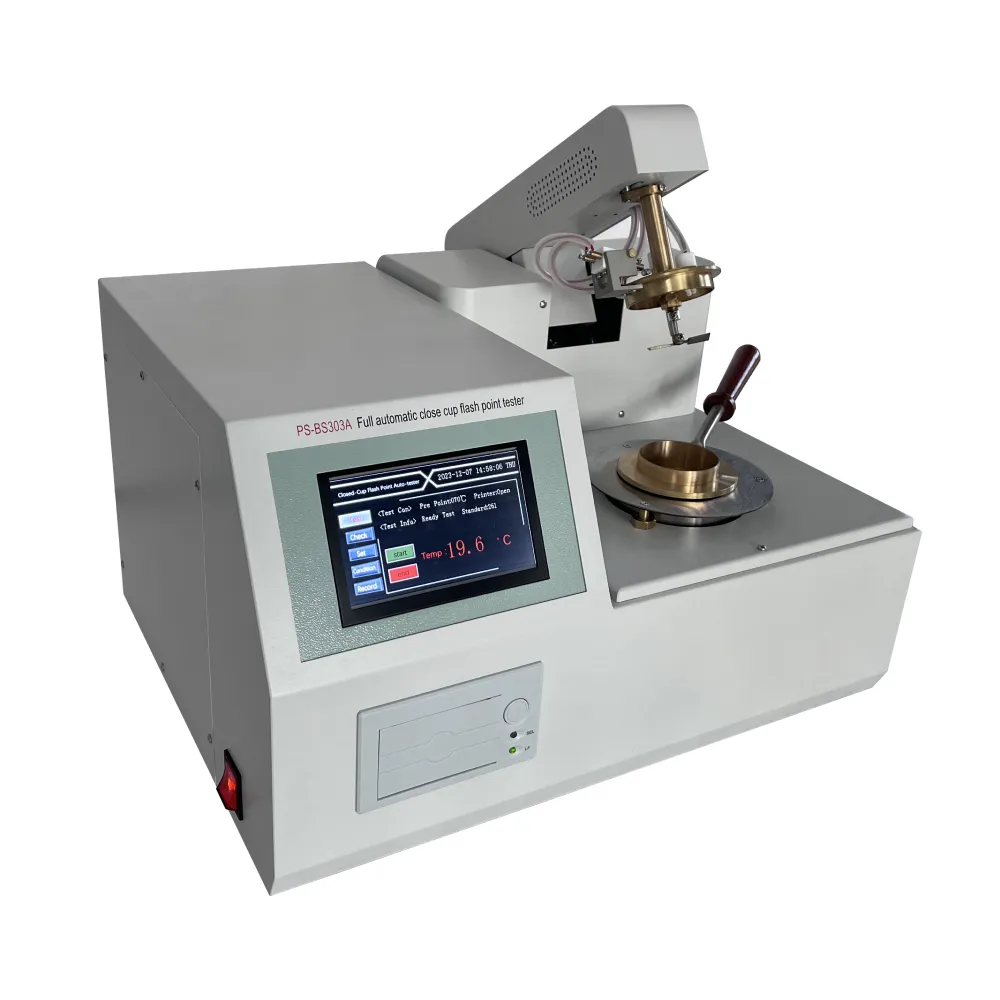TEL:
+86-0312-3189593
 English
English

Telephone:0312-3189593

Email:sales@oil-tester.com

-
 Afrikaans
Afrikaans -
 Albanian
Albanian -
 Amharic
Amharic -
 Arabic
Arabic -
 Armenian
Armenian -
 Azerbaijani
Azerbaijani -
 Basque
Basque -
 Belarusian
Belarusian -
 Bengali
Bengali -
 Bosnian
Bosnian -
 Bulgarian
Bulgarian -
 Catalan
Catalan -
 Cebuano
Cebuano -
 China
China -
 China (Taiwan)
China (Taiwan) -
 Corsican
Corsican -
 Croatian
Croatian -
 Czech
Czech -
 Danish
Danish -
 Dutch
Dutch -
 English
English -
 Esperanto
Esperanto -
 Estonian
Estonian -
 Finnish
Finnish -
 French
French -
 Frisian
Frisian -
 Galician
Galician -
 Georgian
Georgian -
 German
German -
 Greek
Greek -
 Gujarati
Gujarati -
 Haitian Creole
Haitian Creole -
 hausa
hausa -
 hawaiian
hawaiian -
 Hebrew
Hebrew -
 Hindi
Hindi -
 Miao
Miao -
 Hungarian
Hungarian -
 Icelandic
Icelandic -
 igbo
igbo -
 Indonesian
Indonesian -
 irish
irish -
 Italian
Italian -
 Japanese
Japanese -
 Javanese
Javanese -
 Kannada
Kannada -
 kazakh
kazakh -
 Khmer
Khmer -
 Rwandese
Rwandese -
 Korean
Korean -
 Kurdish
Kurdish -
 Kyrgyz
Kyrgyz -
 Lao
Lao -
 Latin
Latin -
 Latvian
Latvian -
 Lithuanian
Lithuanian -
 Luxembourgish
Luxembourgish -
 Macedonian
Macedonian -
 Malgashi
Malgashi -
 Malay
Malay -
 Malayalam
Malayalam -
 Maltese
Maltese -
 Maori
Maori -
 Marathi
Marathi -
 Mongolian
Mongolian -
 Myanmar
Myanmar -
 Nepali
Nepali -
 Norwegian
Norwegian -
 Norwegian
Norwegian -
 Occitan
Occitan -
 Pashto
Pashto -
 Persian
Persian -
 Polish
Polish -
 Portuguese
Portuguese -
 Punjabi
Punjabi -
 Romanian
Romanian -
 Russian
Russian -
 Samoan
Samoan -
 Scottish Gaelic
Scottish Gaelic -
 Serbian
Serbian -
 Sesotho
Sesotho -
 Shona
Shona -
 Sindhi
Sindhi -
 Sinhala
Sinhala -
 Slovak
Slovak -
 Slovenian
Slovenian -
 Somali
Somali -
 Spanish
Spanish -
 Sundanese
Sundanese -
 Swahili
Swahili -
 Swedish
Swedish -
 Tagalog
Tagalog -
 Tajik
Tajik -
 Tamil
Tamil -
 Tatar
Tatar -
 Telugu
Telugu -
 Thai
Thai -
 Turkish
Turkish -
 Turkmen
Turkmen -
 Ukrainian
Ukrainian -
 Urdu
Urdu -
 Uighur
Uighur -
 Uzbek
Uzbek -
 Vietnamese
Vietnamese -
 Welsh
Welsh -
 Bantu
Bantu -
 Yiddish
Yiddish -
 Yoruba
Yoruba -
 Zulu
Zulu
Th2 . 11, 2025 02:18
Back to list
flash point testing lab
Power factor testing is a vital process in maintaining the efficiency and reliability of electrical systems. This testing not only helps in enhancing the longevity of electrical equipment but also aids in ensuring safety standards are met. Understanding the intricacies of power factor testing and its benefits can greatly influence the optimal operation of various industries relying heavily on electrical systems.
Authoritativeness in power factor testing is evidenced through established standards and guidelines provided by authoritative bodies such as the Institute of Electrical and Electronics Engineers (IEEE) and the National Electrical Manufacturers Association (NEMA). These organizations provide comprehensive guidelines on how to effectively conduct power factor tests and interpret their results. Adhering to these standards not only confirms compliance but also enhances the credibility of the testing process. Trustworthiness is a critical aspect when conducting power factor testing. Utilizing certified professionals and investing in high-quality testing equipment delivers accurate and reliable results. Trust in the testing process is further bolstered when companies engage third-party auditors to verify findings, ensuring an unbiased assessment of electrical systems. In practice, products designed for power factor correction are an integral part of modern electrical systems. Devices such as automatic power factor controllers and smart power meters not only enable continuous monitoring but also automatically adjust settings to maintain an ideal power factor. These innovative solutions are widely recommended by experts for facilities aiming to optimize their energy efficiency and reduce operational costs. In conclusion, power factor testing plays a crucial role in the seamless functioning of electrical systems across various industries. Through practical experiences, expert knowledge, adherence to authoritative guidelines, and a commitment to trustworthiness, power factor testing leads to substantial improvements in energy efficiency, safety, and equipment durability. Investing in this proactive approach ensures that electrical systems operate efficiently, saving costs and enhancing overall system performance.


Authoritativeness in power factor testing is evidenced through established standards and guidelines provided by authoritative bodies such as the Institute of Electrical and Electronics Engineers (IEEE) and the National Electrical Manufacturers Association (NEMA). These organizations provide comprehensive guidelines on how to effectively conduct power factor tests and interpret their results. Adhering to these standards not only confirms compliance but also enhances the credibility of the testing process. Trustworthiness is a critical aspect when conducting power factor testing. Utilizing certified professionals and investing in high-quality testing equipment delivers accurate and reliable results. Trust in the testing process is further bolstered when companies engage third-party auditors to verify findings, ensuring an unbiased assessment of electrical systems. In practice, products designed for power factor correction are an integral part of modern electrical systems. Devices such as automatic power factor controllers and smart power meters not only enable continuous monitoring but also automatically adjust settings to maintain an ideal power factor. These innovative solutions are widely recommended by experts for facilities aiming to optimize their energy efficiency and reduce operational costs. In conclusion, power factor testing plays a crucial role in the seamless functioning of electrical systems across various industries. Through practical experiences, expert knowledge, adherence to authoritative guidelines, and a commitment to trustworthiness, power factor testing leads to substantial improvements in energy efficiency, safety, and equipment durability. Investing in this proactive approach ensures that electrical systems operate efficiently, saving costs and enhancing overall system performance.
Previous:
Latest news
-
Testing Equipment Industry Sees Major Advancements in 2025: Smart & Precision Technologies Lead the WayNewsJun.06,2025
-
Applications of Direct Current Generators in Renewable Energy SystemsNewsJun.05,2025
-
Hipot Tester Calibration and Accuracy GuidelinesNewsJun.05,2025
-
Digital Circuit Breaker Analyzer Features and BenefitsNewsJun.05,2025
-
Benefits of Real-Time Power Quality Monitoring Devices for Industrial EfficiencyNewsJun.05,2025
-
Earth Fault Loop Testing in High-Rise Building Electrical SystemsNewsJun.05,2025



